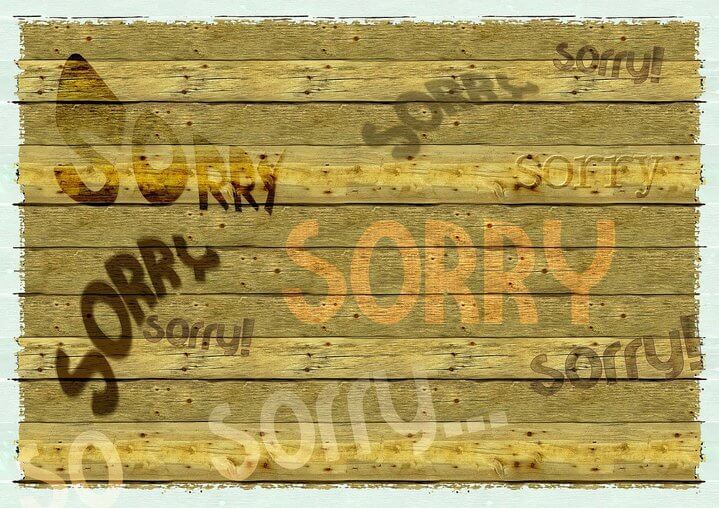In this post, we’ll dive into some helpful tips to practice self-forgiveness that are simple and actionable, that you can start using today.
But first, let’s briefly talk about what self-forgiveness means.
At its core, it’s the ability to accept your mistakes and release feelings of guilt or shame. It can be challenging, but it’s an essential part of emotional healing and personal growth. It also plays a crucial role in maintaining mental and emotional well-being.
It allows you to accept your past actions and move forward with a more positive mindset.
For a more in-depth article on this subject, please go to “Self-Forgiveness as a Path to Better Emotional Health“.
The goal of this post is to give you efficient strategies to help you forgive yourself and move forward.
Tips to Practice Self-Forgiveness
There are many techniques to practice self-forgiveness. So, find what works best for you. Here are 5 simple tips to get you started:
#1. Identify your mistakes
The first step to self-forgiveness is to acknowledge the mistake you made. This means being honest with yourself about what happened, but without judgment. Recognizing your mistakes doesn’t mean beating yourself up.
Take some time to reflect on the situation and pinpoint what went wrong. Think about how your actions or decisions affected both yourself and others.
Also, it’s important to understand the context of the mistake and why it happened. Maybe you were stressed, uninformed, or simply made an error in judgment.
This self-awareness allows you to move past the incident with greater insight and understanding.
#2. Take responsibility
Once you’re aware of your mistake, the next important step is to take full responsibility for it. This means owning up to your actions without making excuses or deflecting blame. It’s natural to feel uncomfortable during this process, but it’s a critical step in healing and moving forward.
A sincere apology can go a long way—not just to others, but to yourself.
If your actions have affected someone else, offer a genuine apology. This doesn’t have to be a grand gesture, but rather an honest conversation in which you express your remorse and willingness to make things right.
In some cases, taking responsibility may involve practical steps to make amends. If there’s something tangible you can do to correct the mistake or ease its consequences, take action.
By working to address your mistake, you rebuild trust with others and regain trust in yourself.
Taking responsibility shows your commitment to growth and integrity.

#3. Reflect on the lessons learned
Reflect on the lessons you can learn from the experience. Mistakes, while difficult, are often our best teachers. Take time to think about what went wrong and how you can approach similar situations differently in the future.
Ask yourself, “What can I take away from this? How can I improve next time?” These questions shift your focus from regret to empowerment, helping you take control of your actions moving forward.
Also, shift your thoughts to more constructive ones. Instead of thinking, “I can’t believe I messed up,” try reframing it with, “I made a mistake, but I’m learning from it and moving forward.”
Part of self-forgiveness is changing how you speak to yourself. Adopting constructive self-talk can help you move forward with greater clarity and confidence.
#4. Practice self-compassion
We tend to hold onto our mistakes with relentless criticism and guilt. Thus, practicing self-compassion means recognizing that you are allowed to make mistakes.
Start by acknowledging your feelings without judgment. It’s okay to feel bad about something you’ve done, but you can accept those emotions without letting them define you. You are not your mistakes.
Treat yourself with warmth and empathy. This will create space for healing, rather than deepening wounds.
When you are kind to yourself, it becomes easier to let go of past mistakes and focus on growth. Through self-compassion, you’ll find the strength to heal, learn, and move forward without guilt holding you back.
In practicing this, you build a stronger, more resilient mindset, making it easier to continue growing.
Related article: Self-Compassion for Beginners: Cultivate Kindness and Enhance Your Well-being
#5. Let it go
The final and perhaps most crucial step in self-forgiveness is to let go of the guilt and move on.
Holding onto guilt indefinitely can become destructive. Replaying the mistake over and over in your mind or beating yourself up for it won’t change what happened. Instead, it will keep you stuck in a negative cycle and prevent you from living in the present.
There’s a good article about guilt by Psychology Today that you may want to check out to go deeper into it.
Furthermore, letting go doesn’t mean forgetting about the mistake or ignoring its impact. It means accepting that you can move forward. It also means freeing yourself from the past and making room for new, more positive experiences.
Ask yourself: How long am I willing to carry this weight? The longer you hold onto guilt, the more it weighs you down, keeping you from experiencing growth and joy.
It’s important to release the emotional burden tied to the mistake. You’ve taken responsibility, you’ve reflected on the lessons, and now it’s time to close that chapter and open a new one.
Letting go is about moving on. You’ve done what you can to make things right, and now it’s time to turn your attention to the present. Trust that you’ve learned from your experience. Only by letting go can you fully heal, grow, and step into the next chapter of your life.
“No work or love will flourish out of guilt, fear, or hollowness of heart, just as no valid plans for the future can be made by those who have no capacity for living now.”
ALAN WATTS
Wrapping It Up
These tips to practice self-forgiveness can free us from the weight of past mistakes and allow for personal growth.
It starts with admitting and taking responsibility for our actions. Learning their valuable lessons can pave the way to healing and self-improvement.
You’re not alone in making mistakes—we all do. What truly matters is how you respond to them.
So forgive yourself, and keep moving forward.


0 Comments